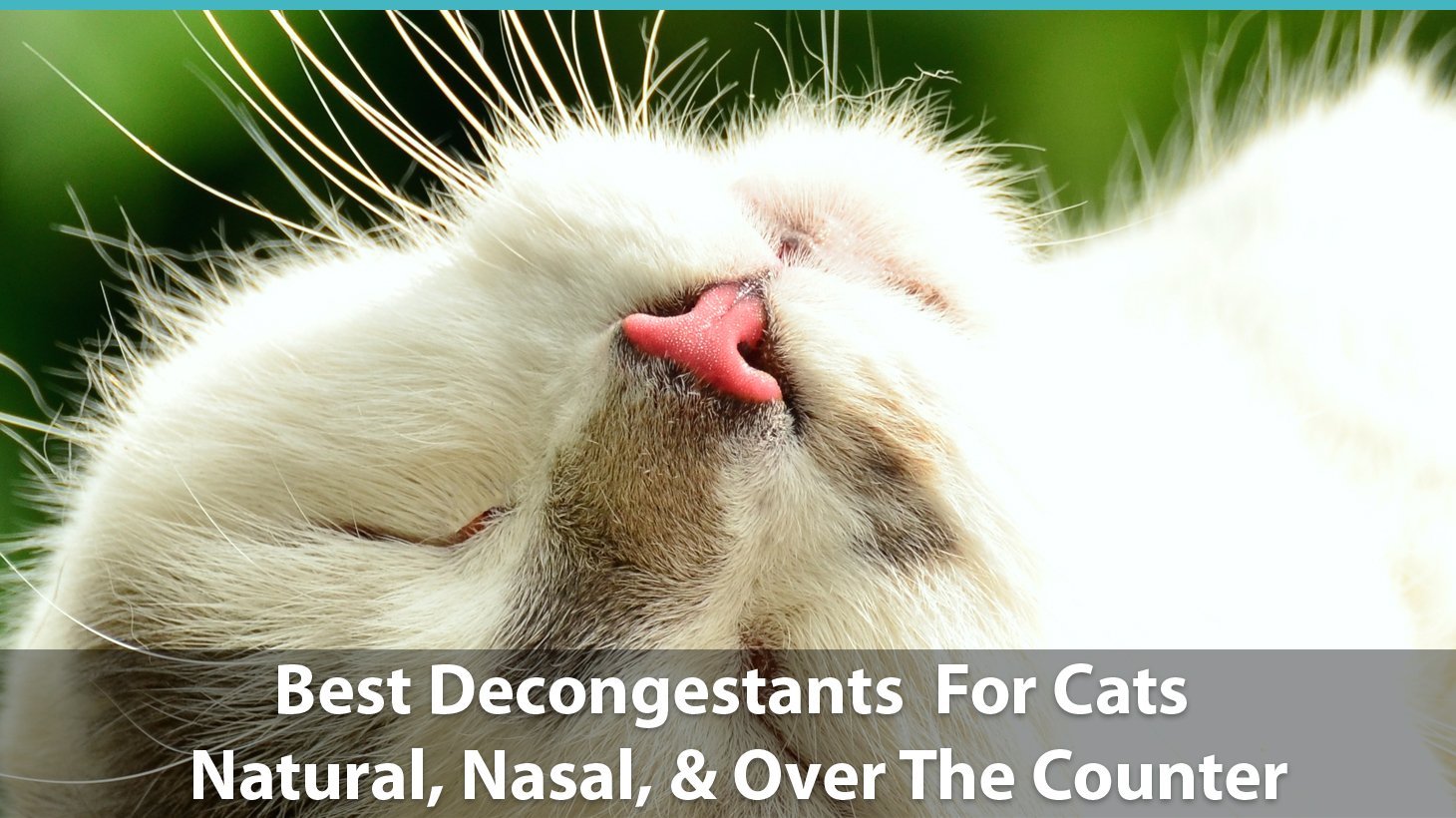A common problem for both indoor and outdoor cats is nasal congestion. You’ll know if your cat is congested if it has the following common symptoms:
- Breathlessness
- Sneezing
- Coughing
- Crusty formations on the nostrils
- Watering eyes
- Signs of discomfort
Due to the fact that congested sinuses block normal airflow, your feline furball will be in pain. Sometimes, especially if the congestion is caused by feline allergies, you’ll also see discharge around the cat’s eyes.
The congested sinuses could be the result of a common cold, allergies, feline herpes, or other similar disorders which are causing upper respiratory problems.
Regardless of the reason, you should seek a vet’s advice in order to relieve your pet of its pain. There are a number of home remedies to help with congested sinuses. You can also opt for some medications in the form of oral and nasal decongestants.
The Best Decongestants For Cats
Before you start digging through your medicine drawer, remember that you’re trying to cure your feline pal, not yourself. Medications manufactured for humans are often toxic for felines. If you’re not careful, you’ll put your precious kitty’s life in serious danger.
What Are The Best Natural Decongestants For Cats?
Instead of opting for any drugs, try helping your pet with the following home remedies. You might be surprised, but many health issues can be cured with inexpensive natural solutions.
- Steam. Hot, concentrated steam can relieve congestion in cats just like in humans. Take the cat inside the steamy bathroom while you’re taking a shower. The hot steam will help reduce the swelling and moisten the mucus in kitty’s nose, thus easing the congestion.
- Nasal sprays. A popular and 100 percent safe natural decongestant for cats and humans alike is a nasal spray containing plain saline. You can get the saline solution over-the-counter in any drug store. Carefully spray the kitty’s nostrils or insert the solution with a syringe. Use nasal sprays once in every 6-8 hours and don’t spray the solution inside the cat’s mouth or eyes.
- Fresh air. Even if you have a humidifier or a vaporizer, you still need to let some fresh air into your home. Unless your cat is suffering from seasonal allergies (like the ones from pollen), the fresh air will help with its congestion.
Lastly, you can also use a warm, damp cloth to carefully clean up any discharge or crust formed around your pet’s stuffy nose, as well as at the entrance of its nostrills.
What Are The Best Over-The-Counter Decongestants For Cats?
- Chlor-Trimeton. Chlorphenamine is a common decongestant for allergies and sinus infections. You can buy it under its trade name Chlor-Trimeton in the form of tablets. These decongestant tablets are safe for cats as long as you use them moderately. Consult with a vet prior to administering this medication. If your cat is already taking other medications, make sure you have informed your vet. You must not mix Chlor-Trimeton with other drugs!
- Guaifenesin. This is an over-the-counter expectorant medication, which relieves respiratory infections and aids against phlegm and mucus buildups. It’s relatively safe for cats in small dosages. Again, you must consult with a reputable vet prior to giving any Guaifenesin to your feline furball. If your vet approves it, you’ll need to administer the drug orally.
- Benadryl. Many pet parents use Benadryl for cats. You can administer it as a liquid, as a pill, or even crushed and mixed with some cat food. The standard safe dosage of Benadryl for cats is one milligram per one pound of weight. However, there are many side effects which your cat can experience, so don’t use Benadryl as decongestant for cats before seeking a vet’s advice.
Are Decongestants Safe For Cats?
According to the Pet Poison Helpline, decongestants sold over-the-counter can cause moderate to severe toxicity in cats. Here are some telltale signs to keep an eye on:
- Abnormal heart rate
- Vomiting
- Abnormal blood pressure
- Dilated pupils
- Breathlessness
- Seizures
If your feline friend is experiencing any of the aforementioned side effects, immediately call your vet for a check-up. Don’t rely on decongestants if you haven’t consulted with a doctor about your pet’s safety. The vet will also advise you on the correct dosage for its organism. If your cat is already taking other medications, don’t mix them with decongestant medications as it may have fatal results.



